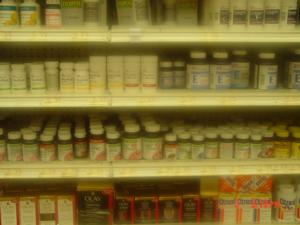|

For
many youths interested in a career in medicine, when asked
what they would like to be they usually will respond, “doctor”,
“nurse”, “dentist” or “veterinarian”.
There is nothing wrong with having such positions, but there
is another career in this field that
may catch their interest, which is known as pharmacy. Pharmacists
supply medicine for a variety of diseases, illnesses and
conditions and inform doctors and patients on their correct
usage. They are the same people that you see when you go
to a drug store such as Rite Aid or Duane Reade to pick
up a prescription. They also work in hospitals and for pharmaceutical
companies.
Pharmacists work in different areas. Those working in community
pharmacies give information about prescription drugs and
may even do so regarding diet, exercise, stress management,
medical equipment, or home healthcare supplies. Those in
healthcare facilities dispense medication, may make sterile
solutions, talk to patients in hospitals about the use of
drugs, and monitor drug programs. For those specializing
in a certain type of drug therapy, there is intravenous
nutrition support, oncology, nuclear pharmacy, geriatric
pharmacy, and psychotherapy. Geriatric pharmacists provide
medicine for elderly people, psychopharmacists are in charge
of medication for the mentally ill, and those specialized
in oncology aide in treating cancer patients.
Nuclear pharmacy in particular is saving the lives of many
with the breakthrough of technology. It requires the use
of radioactive substances for nuclear medical procedures
such as chemotherapy and the planting of radioactive seeds
in a cancerous organ. Nuclear pharmacists prepare and dispense
radioactive materials, aide nuclear medicine staff in the
selection of these products, and help interpret unusual
studies. Since few schools provide training in nuclear pharmacy,
someone interested in this field may wish to attend Purdue
University. This is because it provides many undergraduate
courses in this area and has a continuing undergraduate
program, which allows currently practicing pharmacists to
obtain a license in nuclear medicine. If you do wish to
attend a college of pharmacy then you may need to take the
Pharmacy College Admission Test (PCAT).

To find out more about what it was like being a pharmacist,
I interviewed Wanda. Her job is working in a hospital and
dispensing medication. While she does not interact with
patients, she works with doctors by making calls and giving
them information and sometimes requesting that they change
the amount or time that their patients take their medicine.
When asked what skills you need to possess as a pharmacist
in order to be successful, she replied, “ You need
be accurate, hard working and have integrity”. She
also told me you need to take Science, Mathematic and English
courses for 3 years in college and then go to pharmacy school
for another two years. When asked what obstacles she needed
to overcome, she replied that she had to work in a timely
matter which was at first difficult since she was constantly
being called to deliver medication to many patients in a
small amount of time. But as she became more experienced,
Wanda learned time management by delivering medication in
order of urgency of the patients’ needs. Now she is
more experienced and her job is no longer as stressful as
it was when she had first started.
Being a pharmacist is a very rewarding career. Whether you
work in Duane Reade, a hospital or with radioactive chemicals
it will feel good to know that you are saving many lives.
Though it is a lot of hard work and requires working in
a very timely manner, if you love what you do then you will
be happy with this career. So if you are interested in medicine,
then pharmacy is a choice to take into consideration.
|